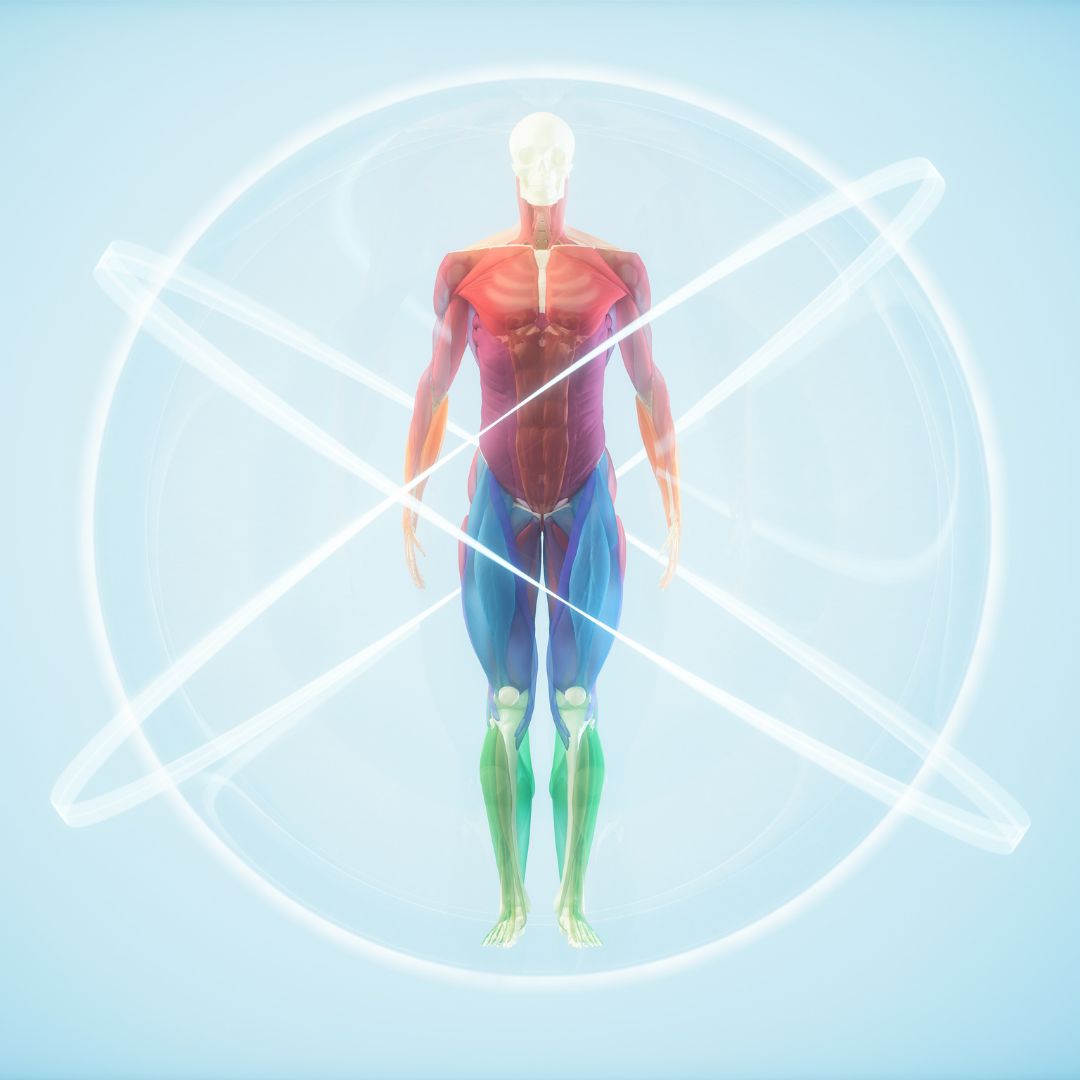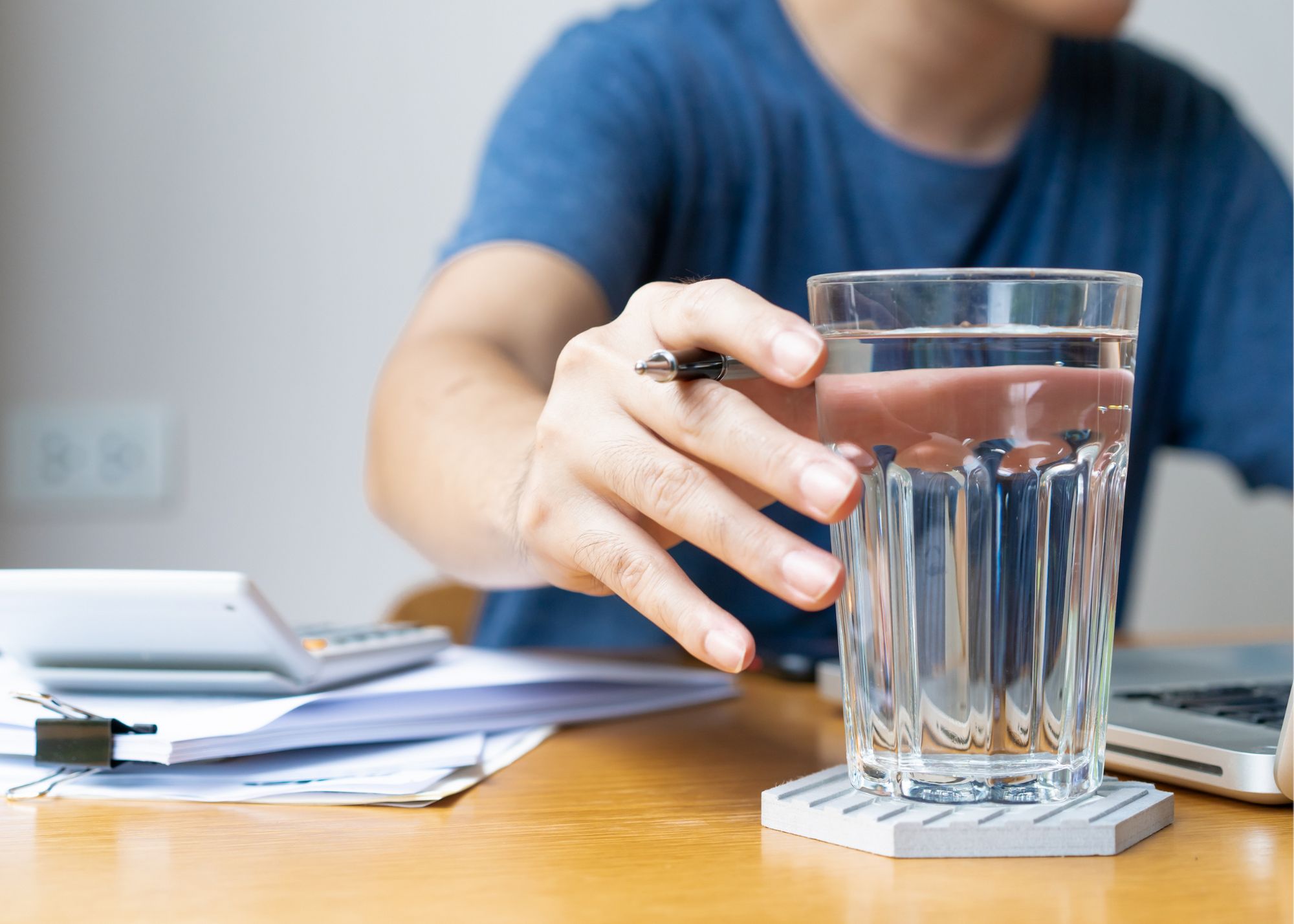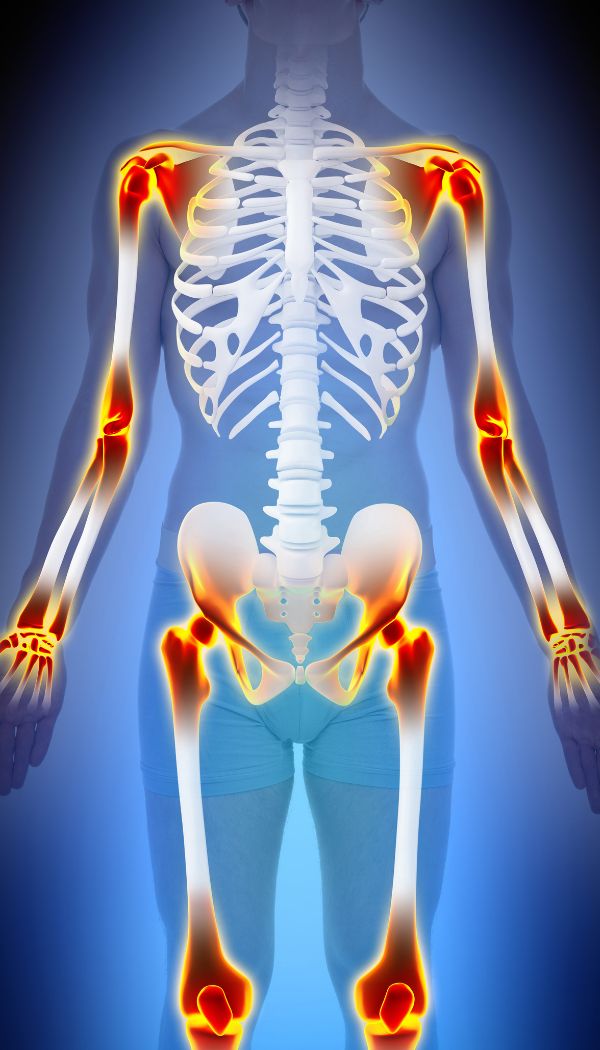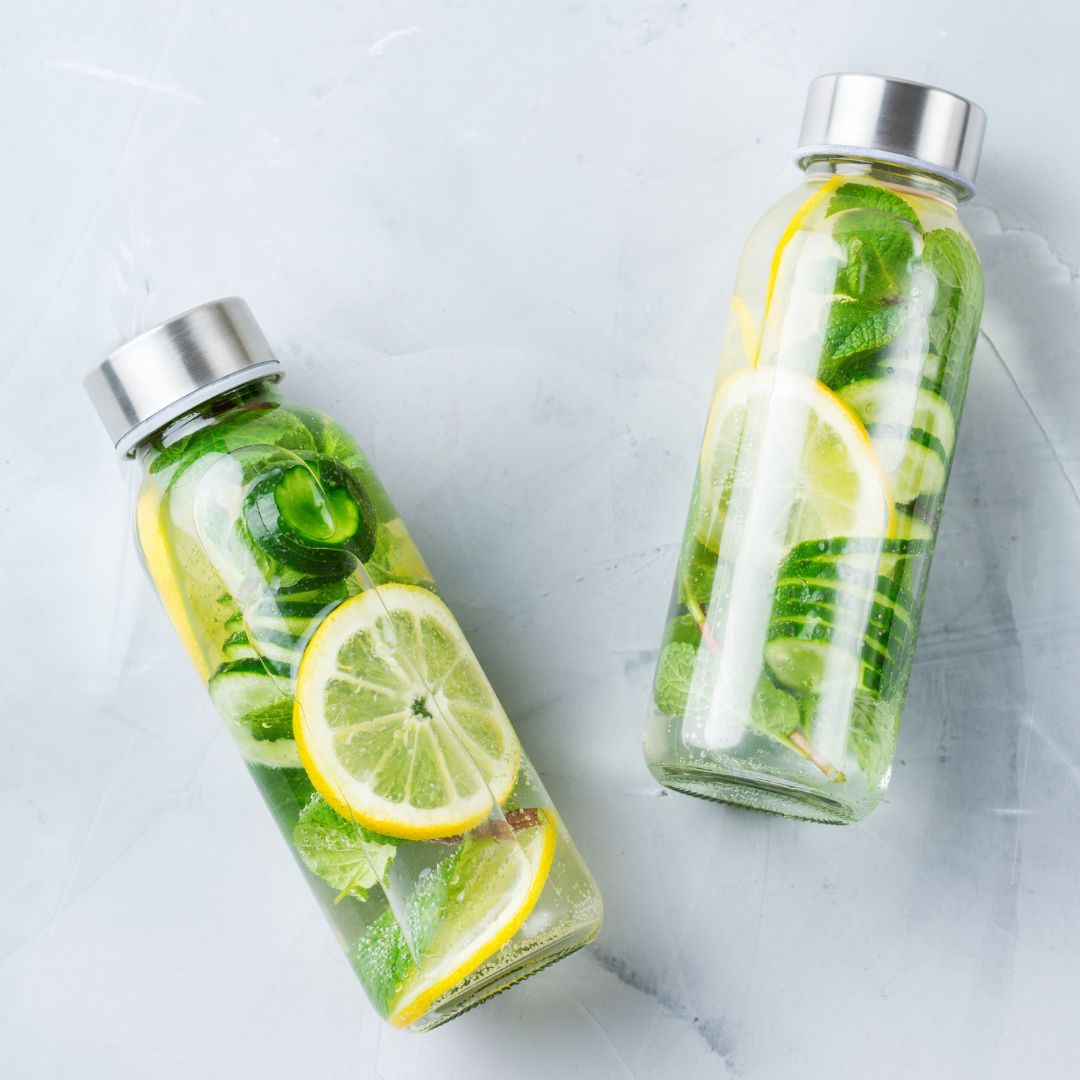
Water is life. It is essential for living, and it is something that our body absolutely cannot function without. Most of us are probably aware of the several benefits of drinking plenty of water. However, when we think about joints and joint pain, we don’t necessarily think about hydration. But water intake and joint health are way more related than most think. Joint pain can be exacerbated or even caused by dehydration.
Let’s connect the dots and see how.
What does water do?
Water is the most essential element that contributes to our existence. The human body is made up of 50-75% water, and this water has many benefits. For example, it provides strength and nourishment to vital body organs; it enables the smooth functioning of the bones; it helps to digest our food and keep the mouth, nose, and eyes moist; it regulates body temperature; and it is also a component of lymph, a fluid that is part of your immune system, which helps you fight off illnesses.
Why do we feel thirsty?
An interesting question is: if the water is already present inside our body and in large volume, then why do we feel thirsty? The reason is that the amount of water present in our body keeps on fluctuating as we lose it while performing actions such as running, cycling, walking, etc, in the form of sweat and excretion. In addition, you also lose water through evaporation when you inhale and exhale the air throughout the day as the inner layer of the lungs is covered with moisture.
If we keep losing our inner water, this eventually leads to dehydration. The initial signs of dehydration are dry mouth and urine becoming darker as your body tries to retain more water. If advanced, dehydration can severely impact your energy level, blood pressure, and mood. Fortunately, as soon as your body detects the low levels of water, the thirst center in the brain gets activated and urges you to drink water as soon as possible.
How much water should you drink?
Of course, the amount of water you should drink daily depends on your level of activity, the climate you live in, your gender, and other factors. However, on average, an adequate fluid intake for someone living in a temperate climate is around 3.7 liters of fluid a day for men and around 2.7 liters for women.
A good piece of advice, easy to remember and accurate, is to drink eight glasses of water per day. When talking about fluids, you don’t need to rely completely on water to meet your needs. Food also provides a significant proportion of daily fluid. For example, many fruits and vegetables, such as watermelon or spinach, are almost completely made up of water.
Why is drinking water important for your joints?
Our joints are lubricated. Just like in a car you have grease when two pieces of metal come together, when our bones come together to form a joint, you also need lubricant between them. Inside the joints, there are capsules that hold a special fluid called synovial fluid. Synovial fluid is primarily made of water, together with hyaluronic acid and other molecules. Therefore, if you are not well hydrated, the synovial fluid is present in a lower amount, and the movement in the joint is abrasive, causing pain and discomfort. Moreover, the cartilage in the joint is also a high water-content tissue that can be weakened and even damaged by dehydration.
In addition to this “mechanical” benefit, water also protects the joints by keeping your muscles healthy so that they can further protect the joints. Our muscle strength is based on electrolytes balance, and if the water content is not enough, this can result in weakening strength and control. Thus, water energizes the muscles and helps speed up recovery time after strenuous exercise.
If lubrication and muscle strength are not enough good reasons to drink plenty of water, reduction of inflammation is another great one. Water helps to flush out toxins and lowering pain-causing inflammation.
Tips for staying hydrated
Joint pain can be extremely debilitating, with discomfort and restricted mobility. Being hydrated is something you can do on a regular basis at home to help with your joint pain (knee, hip, shoulder, etc.). It will not cure it, but it will help to manage it. Drinking plenty of water can stimulate the production of synovial fluid (the joint lubricant), reduce inflammation and encourage the growth of new cartilage cells.
First of all, you should try to keep hydrated before getting to the point of being thirsty. For our organism, when you are thirsty is already “too late”, which means that a specific alarm mechanism has been put in place. Instead, try to drink water regularly throughout the day and adjust your intake if you are exercising and if it’s particularly hot.
Here are some tips to help you stay hydrated and take care of your joints:
- Drink a glass of water first thing in the morning
- Carry a water bottle with you – you are more likely to drink your water if it’s right there with you
- Flavor your water with lemon slices, mint, or cucumber to add a whole new taste
- Take water breaks – stand up from your desk to go and get a glass of water, you put some steps in, and you stay hydrated; it’s a win-win.
- Eat your water. As mentioned, some foods are particularly rich in water
- Drink other kinds of beverages like tea (avoid soda and sugary drinks!)
- Track your intake with an app – if technology is your thing, find an app that works for you and use it to keep track of your daily water intake.
- Drink before snacking – sometimes we think we are hungry but what we are feeling is thirst. Try to have a sip of water before reaching for your snack cupboard.
At Optimum Health Rehab, we are committed to our patient’s health by obtaining Optimum Health naturally. Stop waiting and start healing; schedule your appointment today!





